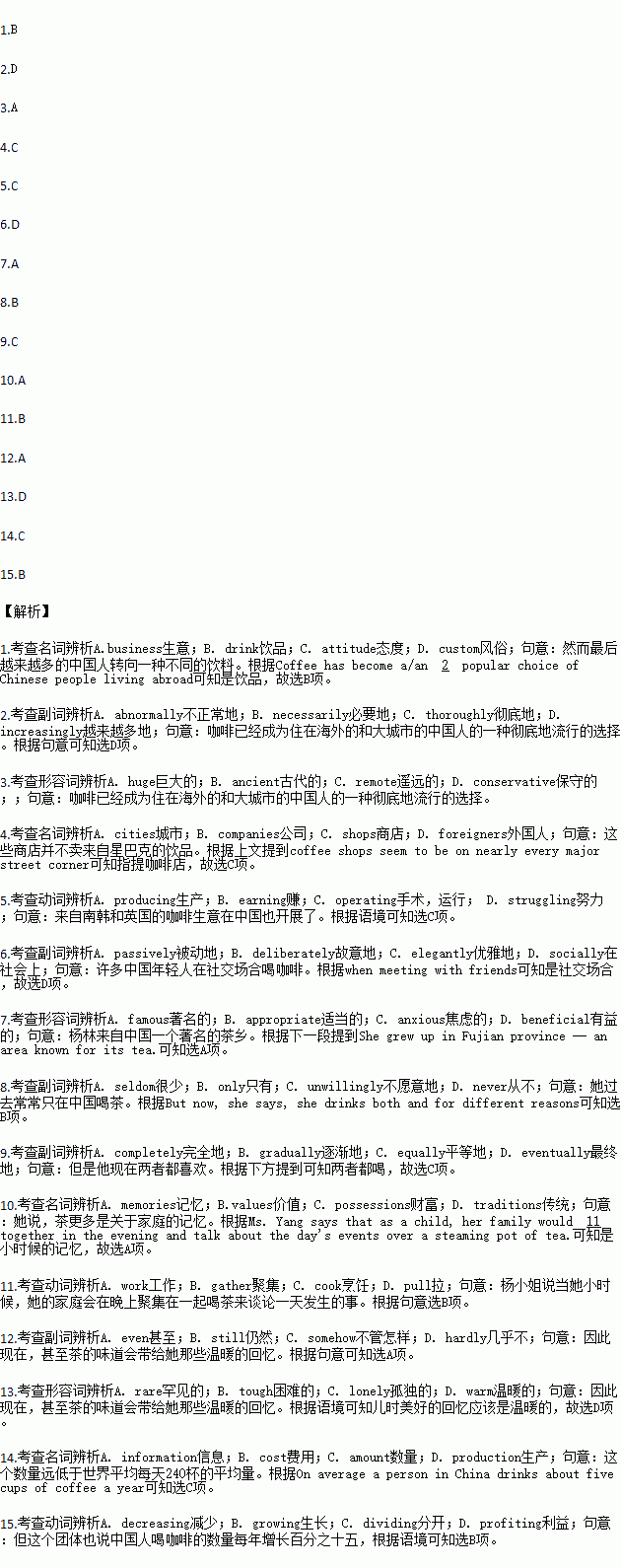题目内容
Asia has long tradition of tea-drinking. And China is no exception.
However, lately more and more Chinese people are turning to a different . Coffee has become a/an popular choice of Chinese people living abroad and in the country's cities. In big cities such as Beijing, coffee shops seem to be on nearly every major street corner. These are not just selling drinks from Starbucks, the world-famous coffee company. Coffee businesses from South Korea and Britain are also in China.
Many young Chinese people drink coffee -- when meeting with friends. Yang Lin lives in the U.S. but comes from an area in China for growing tea. She used to drink tea while in China. But now, she says, she drinks both and for different reasons.
Yang Lin says she was a tea drinker when she was back in China. But she likes coffee and tea now. Drinking coffee for her is a social event. She and her co-workers like to sit in a café and talk over a cup of coffee. Tea, she says, is more about family . She grew up in Fujian province -- an area known for its tea. Ms. Yang says that as a child, her family would together in the evening and talk about the day's events over a steaming pot of tea. So now, the smell of Fujian tea brings back these family memories.
On average a person in China drinks about five cups of coffee a year. This information comes from the China Coffee Association Beijing. That is far below the world average of 240 cups a year. But the association says the amount of coffee that Chinese drink is by about 15 percent every year.
1.A.business B. drink C. attitude D. custom
2.A. abnormally B. necessarily C. thoroughly D. increasingly
3.A. huge B. ancient C. remote D. conservative
4.A. cities B. companies C. shops D. foreigners
5.A. producing B. earning C. operating D. struggling
6.A. passively B. deliberately C. elegantly D. socially
7.A. famous B. appropriate C. anxious D. beneficial
8.A. seldom B. only C. unwillingly D. never
9.A. completely B. gradually C. equally D. eventually
10.A. memories B.values C. possessions D. traditions
11.A. work B. gather C. cook D. pull
12.A. even B. still C. somehow D. hardly
13.A. rare B. tough C. lonely D. warm
14.A. information B. cost C. amount D. production
15.A. decreasing B. growing C. dividing D. profiting

